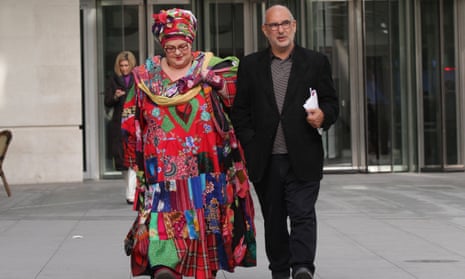On 5 August 2015, some of Britain’s most vulnerable children were abandoned when Kids Company, the charity led by Camila Batmanghelidjh, went bust. Kids Company claimed that it provided services to 36,000 children, young adults and their families each year. Now they had nowhere to go.
The postmortem that followed blamed various parties, including chair Alan Yentob, the charity’s trustees, its charismatic founder and government ministers. Collective irresponsibility was apparently the norm.
Kids Company’s services, logistics, egos and £46m in public money were all supposed to be overseen by a committee of high-profile volunteer trustees. It sounds absurd in the cold light of day, but this is how most charities work. The problem of Kids Company is bigger than one painful collapse: it goes to the heart of whether the idea of charity itself can survive.
The big area of concern is that, like many charities, Kids Company was led by demand: if a vulnerable child turned up at the door, it would help. This made business planning complex and finances vulnerable; a lack of money in the bank left the charity in perpetual crisis.
Most charities suffer from these problems. Larger charities in the UK have, on average, only three months’ worth of reserves; if the funding dries up they have just about enough time to wind up and not much else. Around 25% of smaller charities - some 31,000 organisations - have no reserves. Even among those with an annual income of more than £500,000, one in twenty have no reserves at all. They could be gone in a flash.
This happens more often than you might realise. In the area of children’s services alone, the British Association for Adoption and Fostering imploded one day before Kids Company collapsed. National childcare charity 4Children went into administration in 2016, after expansion fuelled by private loans unravelled.
Earlier this year the Lifeline Project, which employed 1,300 staff and served 80,000 people with drug and alcohol issues, went under. These are not minor organisations.
Mencap suggested recently that hundreds of disability care charities could be on the brink of collapse.
We can blame government funding cuts or claim these incidents as isolated occurrences, but the truth is that charities have always operated with one hand tied behind their back.
The principle that committees of volunteer trustees should run charities has been at their heart for centuries. But now that charities are spending tens of billions of pounds a year holding up key public services, this model is killing them.
How do we avoid the biggest public service catastrophe in a generation? Trustee training is provided by organisations like Charity Futures, which was set up in response to the Kids Company collapse. This is sensible, but ultimately the regulations need to change: charities cannot be governed by volunteers any more. Unitary boards would see more paid executives working alongside professional and amateur trustees, but the charity regulator makes this a bureaucratic and painstaking process. Government could intercede.
In its absence, charities are beginning to take matters into their own hands. Earlier this summer Scope made a landmark decision to stop being a charity and convert to a “social purpose business” with chief executive Mark Atkinson saying that the notion of charity is seen by many to undermine disabled people’s rights. The implication was clear: to achieve a greater impact, Scope must stop being a charity.
It is time to decide whether charity is worth saving or not. For now, arcane governance, absurd laws and a willingness to keep believing that things may get better, prevents any form of meaningful discussion about which services matter and how the sector can get proper funding. One thing is certain: history will judge how we respond to Kids Company.
Asheem Singh is author of The Moral Marketplace (Policy Press) and former chief executive of charity leaders’ network Acevo
Talk to us on Twitter via @Gdnvoluntary and join our community for your free fortnightly Guardian Voluntary Sector newsletter, with analysis and opinion sent direct to you on the first and third Thursday of the month.
Looking for a role in the not-for-profit sector, or need to recruit staff? Take a look at Guardian Jobs.
